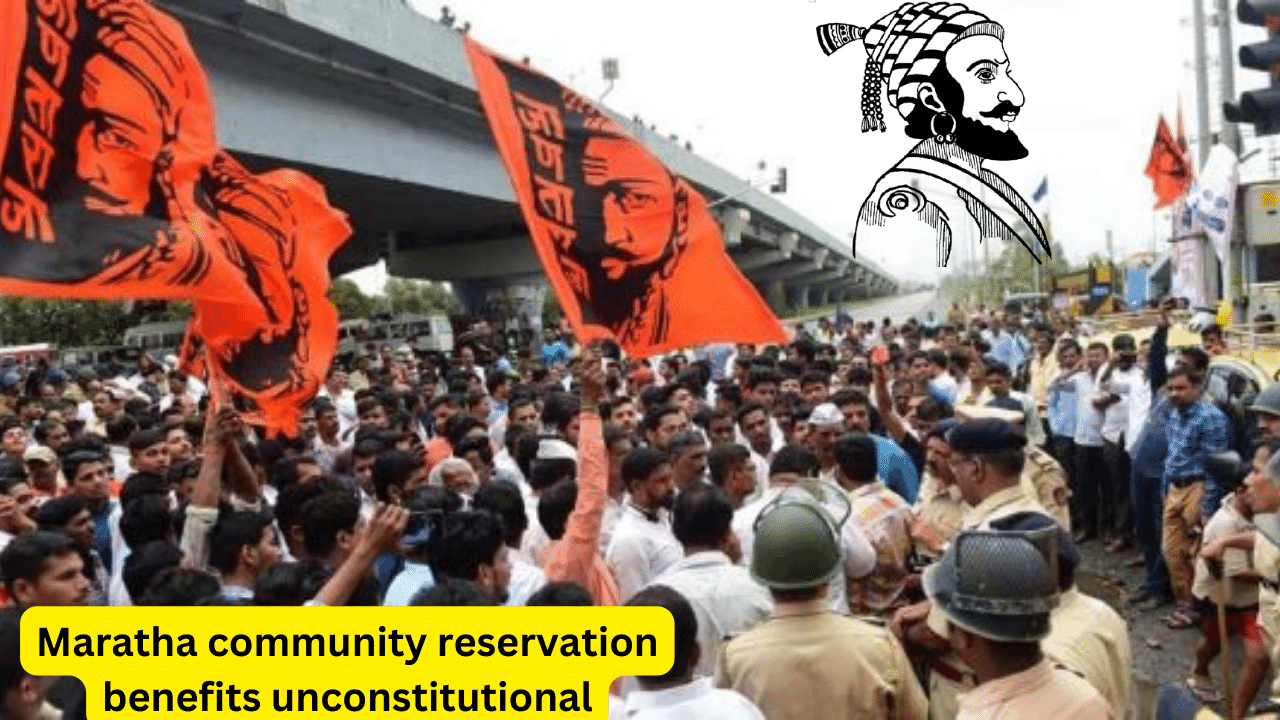A review petition filed by the then-Maharashtra government on June 23, 2021, which contested a ruling from May 5, 2021, declaring a law giving the Maratha community reservation benefits unconstitutional, was dismissed on Thursday night by a five-judge bench of the Indian Supreme Court.
The law went beyond the 50% ceiling limit imposed by the Supreme Court in an earlier judgement by granting the Maratha community reservations of 12 and 13 percent in education and employment, respectively.
It was determined by the bench, presided over by Justice Ashok Bhushan, that there were no exceptional circumstances or extraordinary situations in Maharashtra that would have allowed the state government to exceed the 50% ceiling and grant the Maratha community benefits under the quota system. Additionally, the bench had ruled that only exceptional circumstances would permit granting of reservations above the maximum of 50%.
The Maharashtra government cited a number of justifications in its review petition for the five-judge bench’s request to hear the case again.The government argued that the reservation for the economically weaker section (EWS) passed by the central government also breached the 50 per cent ceiling in many states.
However, the review bench of Justices M R Shah, Sanjiv Khanna, B R Gavai, S Ravindra Bhat, and V Ramasubramanian found no error apparent on the face of the record that warranted reconsideration of the impugned judgment. The review petitions were dismissed, and pending applications were disposed of.
The Maratha reservation issue has been a contentious and highly debated topic in Maharashtra. The Marathas, a politically and socially dominant community in the state, had been demanding reservation benefits for a long time. The Maharashtra government passed the Maharashtra State Reservation for Socially and Educationally Backward Classes (SEBC) Act, 2018, which extended reservation benefits to the Maratha community.
However, several petitions challenging the constitutionality of the Act were filed in the Bombay High Court. The High Court, in its judgment, had upheld the constitutional validity of the Act but reduced the percentage of reservation from 16 per cent to 12 per cent in education and from 27 per cent to 13 per cent in employment.
The case then went to the Supreme Court, which struck down the law as unconstitutional, citing the 50 per cent ceiling limit set in the Indra Sawhney judgment passed by a nine-judge bench. Additionally, the bench had ruled that only exceptional circumstances would permit granting of reservations above the maximum of 50%.
The Supreme Court’s decision has been a setback for the Maratha community, which had been hoping to benefit from the reservation. The decision has also been a setback for the Maharashtra government, which had passed the law in response to the demands of the Maratha community.
The decision has raised questions about the efficacy and constitutionality of the reservation system in India. While reservation was initially introduced as a means of affirmative action to promote the interests of historically disadvantaged and marginalized groups, it has become a contentious issue, with various communities demanding reservation benefits. The reservation system has also been criticized for perpetuating caste-based identities and not being effective in achieving its intended goals.
The decision also highlights the need for a more nuanced and comprehensive approach to addressing issues of inequality and social justice in India. While reservation is one aspect of affirmative action, there is a need for broader policies that address the root causes of inequality and promote social and economic mobility. The government must also address issues of corruption, nepotism, and lack of access to education and employment opportunities that perpetuate inequality.
The decision also raises questions about the role of the judiciary in shaping public policy. While the judiciary has an important role in upholding the constitution and protecting the rights of citizens
1997 Uphaar fire tragedy case: Amod Kanth’s trial proceedings cancelled









Leave a Reply